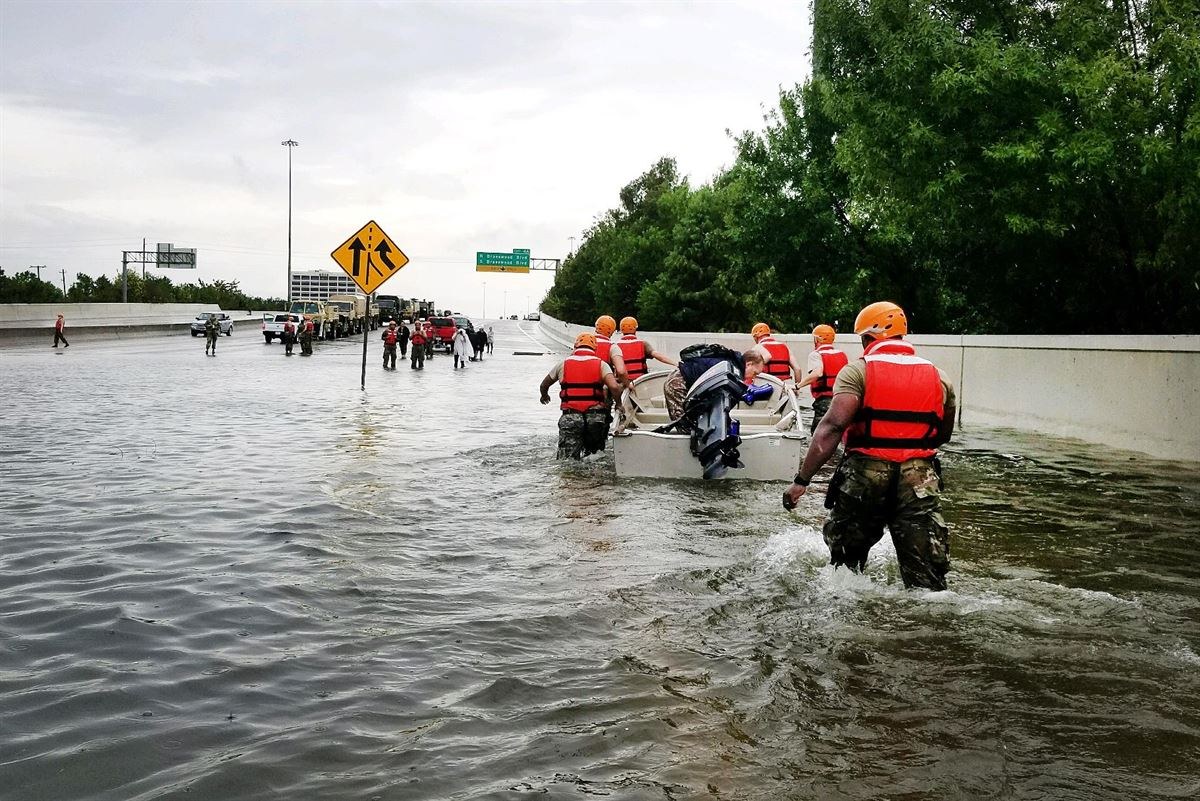Views expressed in opinion columns are the author’s own.
We have two national crises on our hands. Both are strong hurricanes that have affected millions of people. Both have elicited major philanthropic responses from Americans and the international community. And both have reminded us of a similar catastrophe in New Orleans only 12 years ago.
But the lessons we learned 12 years ago seem to have fallen on deaf ears, as we still fail to be prepared. The preparations for and in response to Hurricane Katrina were widely criticized. The White House published a report entitled “Lessons Learned,” and over a third of survivors interviewed were suffering from depression or PTSD. The worst part about this travesty is that it could have been prevented had the government and aid services done a better job assisting the public and coordinating the response.
Yet, with all the stories of extreme waste and inefficient response, there is one central issue that comes to the forefront with every hurricane we endure. Human beings hate long-term planning, and when decisions are made with only the short term in mind, we set ourselves up for long-term vulnerabilities. While it may seem absurd to frame hurricane damage as a psychological and economic phenomenon, doing so can help us understand how to prevent future disasters.
The aversion toward accepting short-term costs for long-term benefits makes political sense; we live in a democracy where our representatives are elected in the short term. But when people don’t think about long-term trade-offs, we end up facing huge costs. Hurricanes are prime examples of how that trade-off functions. Because citizens don’t want to pay more taxes, politicians keep them low. To do that, politicians have to cut as much as they can from the budget.
Oftentimes, city planning and infrastructure are cut first. These are budgetary matters no one in the public cares about until there is a need, and when there is a need it is often easy to blame it on other causes (like weather). But New Orleans’ leaders knew years in advance they were unequipped to handle a strong hurricane, even though the city is located in a hurricane zone. Houston also struggled with poor developmental planning, and while it is still too soon to know the damage in Florida, we can only hope that its new post-Hurricane Andrew infrastructure changes are enough to withstand Irma.
Building stronger levees, better drainage systems and better contingency plans for hurricanes will save billions of dollars and countless lives. If we build our cities better, they can last longer and withstand hurricanes more effectively. Strong hurricanes like Katrina, Harvey and Irma will always pose risks, but if we have the capacity to mitigate those risks, we must. Additionally, we must combat factors — like climate change — that increase hurricane intensity.
While poor municipal policy shouldn’t dissuade us from donating to victims of Harvey and Irma, we must rebuild our damaged cities intelligently. We should pressure city governments to invest in long-term safety projects and combat climate change. Similarly, we should donate to organizations that combat climate change. We should think on a large scale and be willing to make sacrifices now that will reap benefits later. Only if we do that, can we live in cities that are genuinely prepared for disasters foreseen and unforeseen.
Moshe Klein is a junior economics and government and politics major. He can be reached at mosheylklein@gmail.com.



